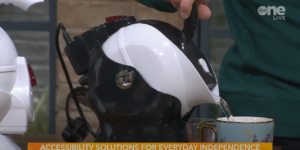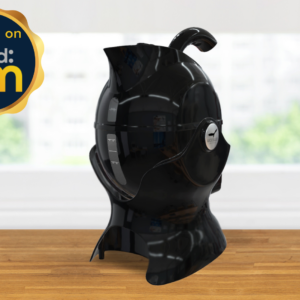Motor neurone disease (MND) is a condition that affects your nerves (motor neurones) in your brain and spinal cord. The nerves tell your muscles what to do.
The term ‘’MND’’ covers a wider group of similar conditions that affect your nerve cells. The effects it can have on your body leads to loss of movement, weakness, and muscle wasting.
In Ireland today there are close to 400 people living with MND. It can affect adults at any age, but the vast majority are diagnosed over the age of 50.
June has always been known as the MND Awareness month with Motor Neurone Day being the 21st of June. Today we wanted to help in raising awareness about the condition and get people talking.
Causes of MND:
The actual causes of motor neurone disease are unknown but there is ongoing research and studies on areas such as:
- Exposed to viruses
- Exposure to certain toxin and chemicals
- Inflammation & damage to neurons can happen because of an immune response
- Nerve growth factors
- Passed down through genetics
- Growth, repair and ageing of your motor neurones
Types of MND:
Many people with MND can experience a combination of both upper and lower motor neurone degeneration. In Ireland, this combination accounts for near 90% of people living with the condition. It has also been known as ‘’Amyotrophic Lateral Sclerosis’’ (ALS).
There are other rare forms of the condition, where there is exclusive involvement of the upper motor neurones or lower motor neurones.
Amyotrophic Lateral Sclerosis (ALS):
The most common form of MND. Here you would have weakness and wasting in the limbs, muscle stiffness and cramps. You may find yourself tripping when you walk or dropping things.
Primary Lateral Sclerosis (PLS):
This is a rarer form of MND and can cause mainly weakness and stiffness that begins in your lower limbs. Some can also experience issues with speech. PLS progresses slowly but it can take time to diagnose.
Most doctors like to wait at least 4 years before they can be certain of a diagnosis.
Progressive Muscular Atrophy (PMA)
This is another rare form of MND and can be difficult to diagnose. Early symptoms may be weakness or clumsiness of the hands. Some people would have exclusive involvement of their speech and swallowing muscles. This is very rare and mostly occurs in older women. The reasons for this are not yet fully understood.
Symptoms of MND:
MND affects everyone differently. Not everyone has all the same symptoms or even in the same order and speed of progression.
If you have been diagnosed or know someone who had, they may have some or all of the symptoms below:
- Stiff Joints – this can limit your range of movement
- Muscle Weakness – loss of muscle mass (wasting) along with movement and mobility problems.
- Muscle Cramps & Spasms – This can include rippling sensations
- Speech & Communication Problem – It can affect how you speak, gesture and show expressions
- Swallowing Difficulties – this can affect how you eat and drink
- Weakened Coughing – It can be harder to clear your throat
- Breathing Problems – can lead to you to feel breathless and fatigued
- Pain & Discomfort – as a result of your other symptoms (not generally caused by MND)
How is it Diagnosed?
It can be quite difficult to diagnose moto neurone disease in its early stages. There is no single test for it and there are a number of conditions that have similar symptoms.
To help rule out other conditions your doctor may arrange:
- Blood tests
- Brain and spine scans
- Muscle and nerve tests
- A Lumbar Puncture (also known as a spinal tap) is where a thin needle is used to remove fluid from your spine to test.
Is There A Cure for MND?
Sadly, motor neurone disease cannot be reversed or stopped. However, there are therapies, equipment and medication to help you manage the symptoms. They can all help you and your loved ones achieve the best possible quality of life.
Treatments Available:
MND has no cure but there are a number of treatment options available to manage the symptoms.
- Working with a specialist nurse and occupational therapist to help make everyday tasks easier at home.
- Physiotherapy to help with an exercise program to maintain strength and reduce stiffness
- Working with a speech and language therapist
- Advice from a dietician about diet and eating
- Medication that may help slow down the progression of the condition
- Medication to help relieve stiffness
- Emotional support from your carer and those around you
Supports Available:
The Irish Motor Neurone Disease Association offers a wide range of support to those living with MND and their carers. Their services are available free of charge regardless of where you live or your financial means. Their services would include:
- Counselling
- MND Nurse Service
- Equipment Loan Service
- Informational Resources
- Home Care Grant
- End of Life Night Nursing
To register with the IMNDA and learn more about their support and service, click here.
Drink Tea for MND & Uccello Designs

Uccello Designs has partnered up with the IMNDA this year for the Drink Tea for MND fundraiser. We have gifted their lead ambassador, Gerard Tracey his own Uccello Kettle to try out, review and make his life that little bit easier at home.














Leave a Comment